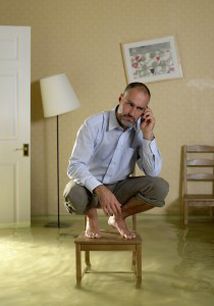Many people living in the Chicago area are unconcerned about flooding because they don’t live directly near a body of water. However, it’s important to understand the facts about Chicago flood possibilities. Even if you aren’t residing next to water, you can still be at risk for serious water damage due to a flood.
Chicago Flooding by the Numbers
When looking at recent numbers from FEMA, it’s easy to see that Chicago residents and property owners need to be aware of flooding potential:
- Nearly 46,000 flood insurance policies are in force in the state of Illinois.
- More than 7.6 million dollars have been paid out to flood victims in Illinois to cover damages and losses.
- Around 700 claims are made, on average, annually in Illinois.
This data shows that flooding should always be something you keep in mind when buying and maintaining any type of structure, whether it’s a house, cottage, townhome or commercial property. Even the smallest flood can cause significant damage, and you don’t want to be caught without precautionary measures in place.
 Should You Purchase Flood Insurance?
Should You Purchase Flood Insurance?
To find out if you are eligible for flood insurance protection, you may want to see if your house or office resides in one of Chicago’s flood zones. This can be done by looking at the information on your property. You may have overlooked flooding considerations when you purchased your real estate, or you might have inherited a property and not realized you could elect for flood insurance coverage.
Flood insurance may not be as cheap as other types of insurance, but if you live in a flood zone, it’s a wise investment. Your general homeowner’s insurance will not cover any type of damage (typically) that is related to rising floodwaters. Therefore, it’s a better bet to speak to an insurance agent in the Chicago area to discuss your options.
Why Flooding Can Happen Anywhere
If you’ve never been through a flooding event before, you might be surprised to learn just how quickly a flood can occur. Many of us immediately picture torrential rain followed by a rush of water, but that’s not always the type of flood people endure. Often, floods happen suddenly after the rain has ended. The groundwater table begins to rise, and as it does, the waters start to creep up.
Water that’s moving closer to the ground can seep into areas of your building’s foundation, rendering it at the mercy of water’s damaging properties. It doesn’t take long for water to force its way into a basement or a below-ground-level space. As soon as water floods in, the damage begins.
To protect yourself, always have a conversation about the potential for Chicago flooding in your neighborhood. If you do experience a flooding event, please contact ServiceMaster of Lincoln Park for quick, efficient clean-up.

 Should You Purchase Flood Insurance?
Should You Purchase Flood Insurance?
Comments are closed.